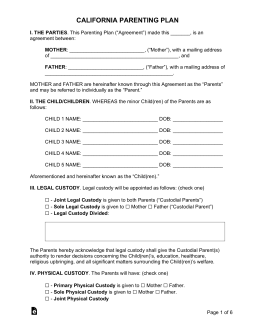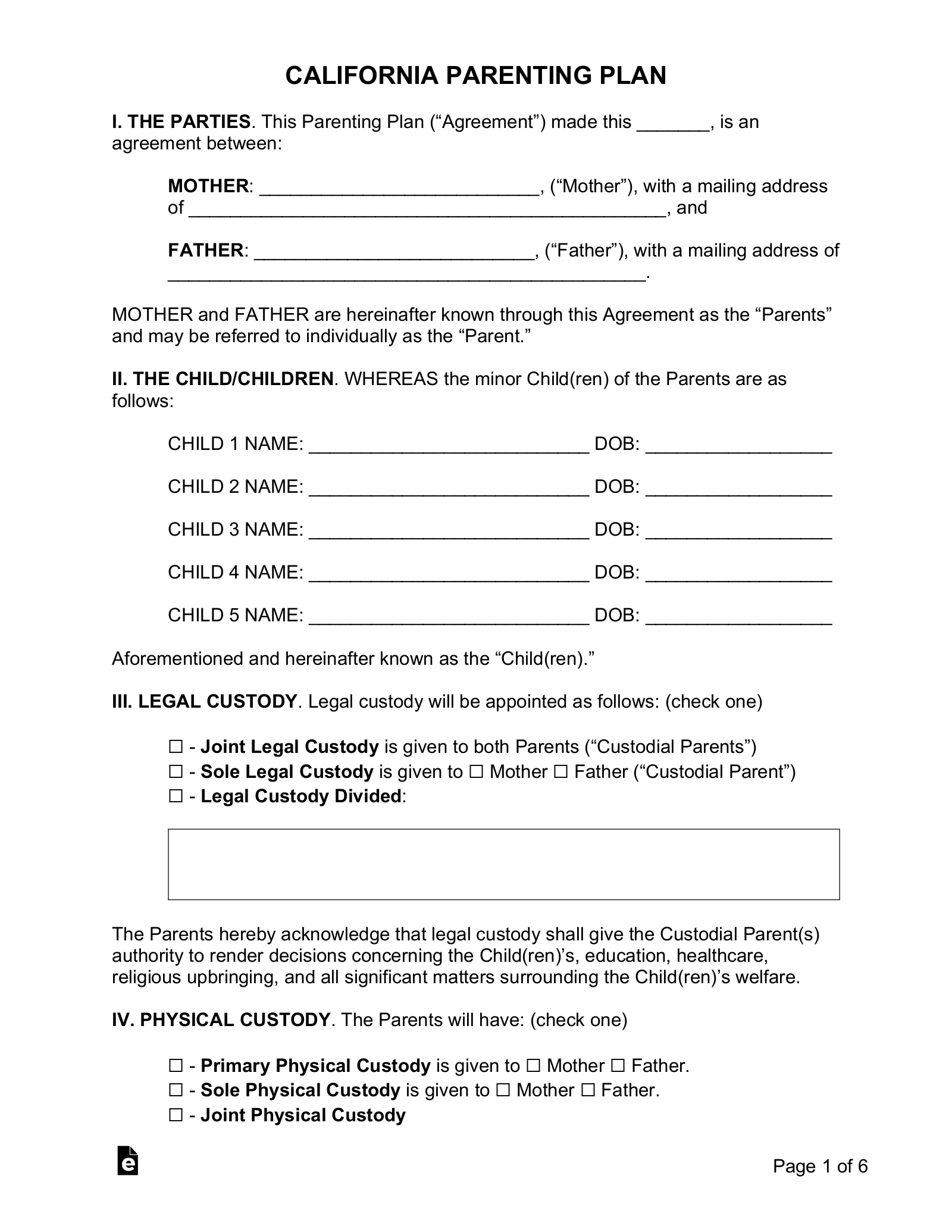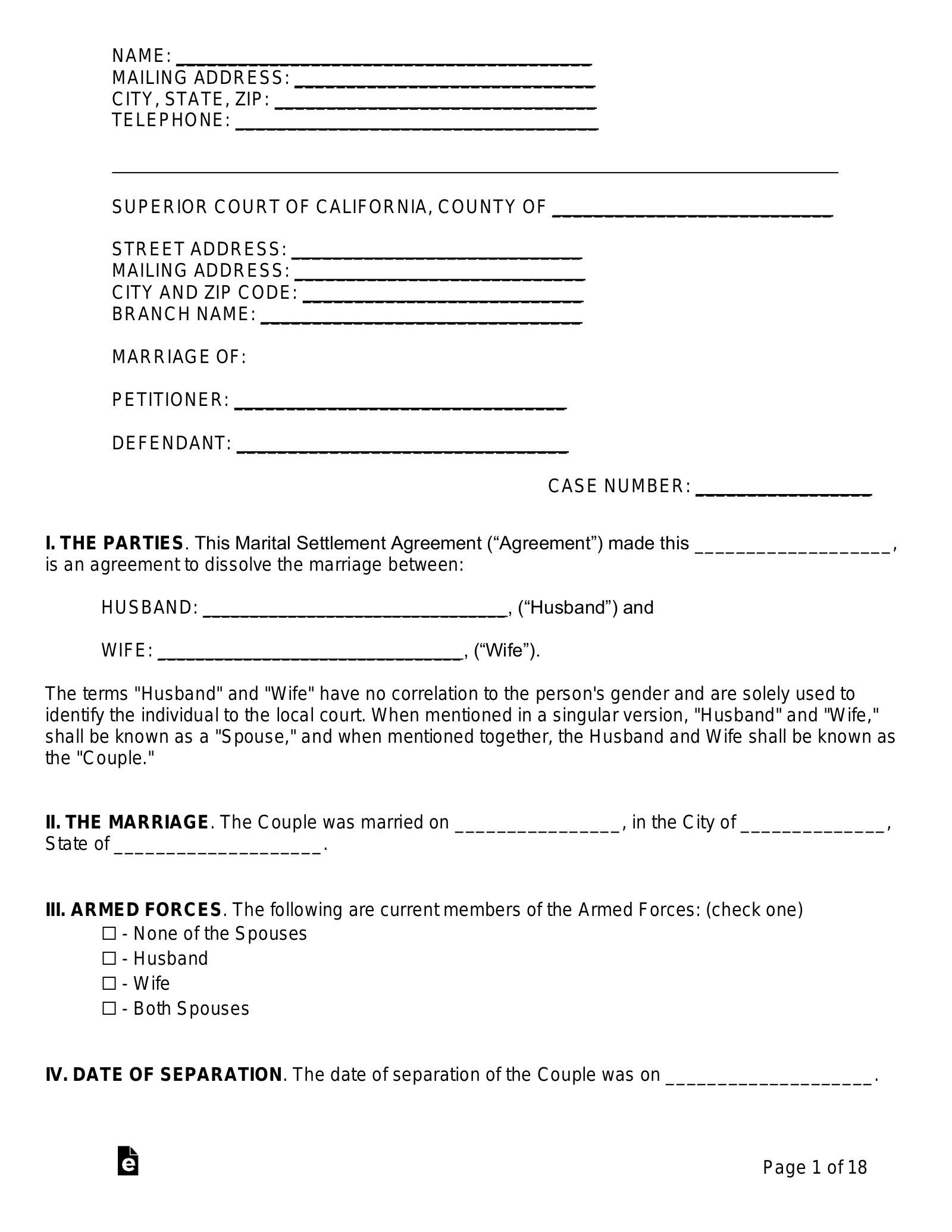Updated March 21, 2024
A California custody agreement is a legal document that specifies the terms of a co-parenting relationship, including each parent’s visitation rights and authority to make decisions that will affect their child. Until a court order has been issued, both parents have equal rights and responsibilities related to the child. California courts presume joint custody, or equal sharing of decision-making and authority, is in the best interest of a child, provided both parents are fit to care for that child and agree to joint custody.[1]
Child Custody Factors
- Which parent is more likely to allow the child frequent and continuing contact with the noncustodial parent
- Each parent’s living environment
- Each parent’s mental health
- Each parent’s use of controlled substances and alcohol
- The child’s wishes
- Whether either parent has perpetrated domestic violence
- Each parent’s location
- Whether either parent is on active military duty
- The child’s emotional ties to each parent
Table of Contents |
How to File for Custody in California
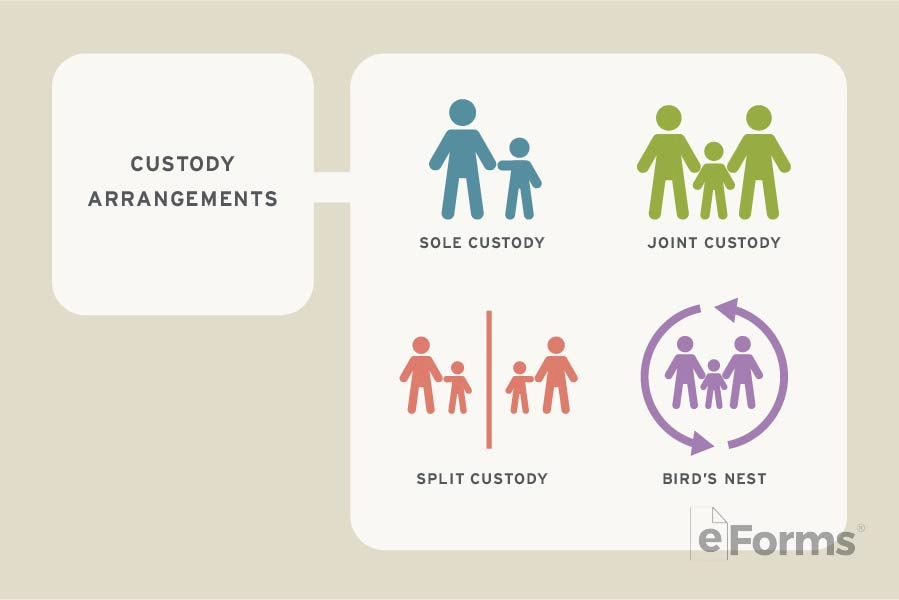
Special laws apply to situations involving domestic violence, which includes emotional, financial, or physical abuse of either a parent or child.[2] To inform a judge about domestic violence, complete Form MC-030 and file it with the court.
1. Agree on a Parenting Plan
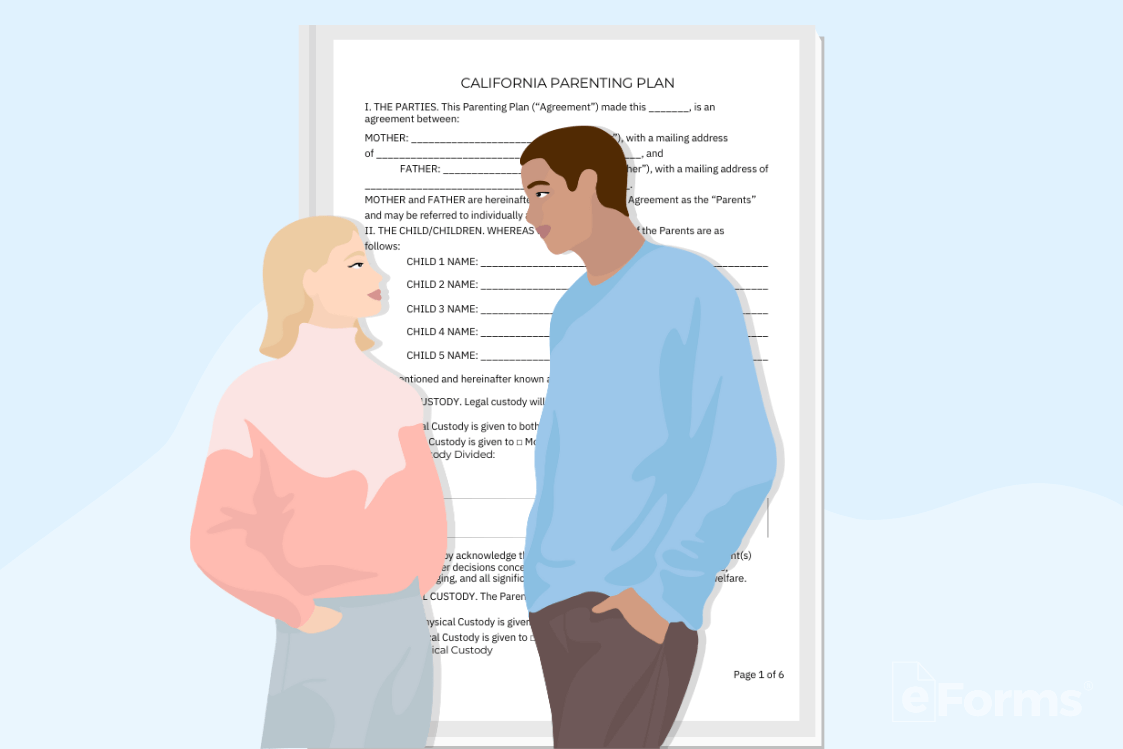
Parents who mutually agree to the terms of their arrangement can submit their parenting plan directly to a judge. Some counties require parents who do not agree to meet with a mediator in order to work out details such as scheduling and decision-making. There is no cost for mediation.
If parents agree during mediation, their plan can become the court’s final order. If they don’t agree and still want to pursue litigation, the discussion that takes place during mediation can yield recommendations that inform the court’s final order.
2. Calculate Child Support
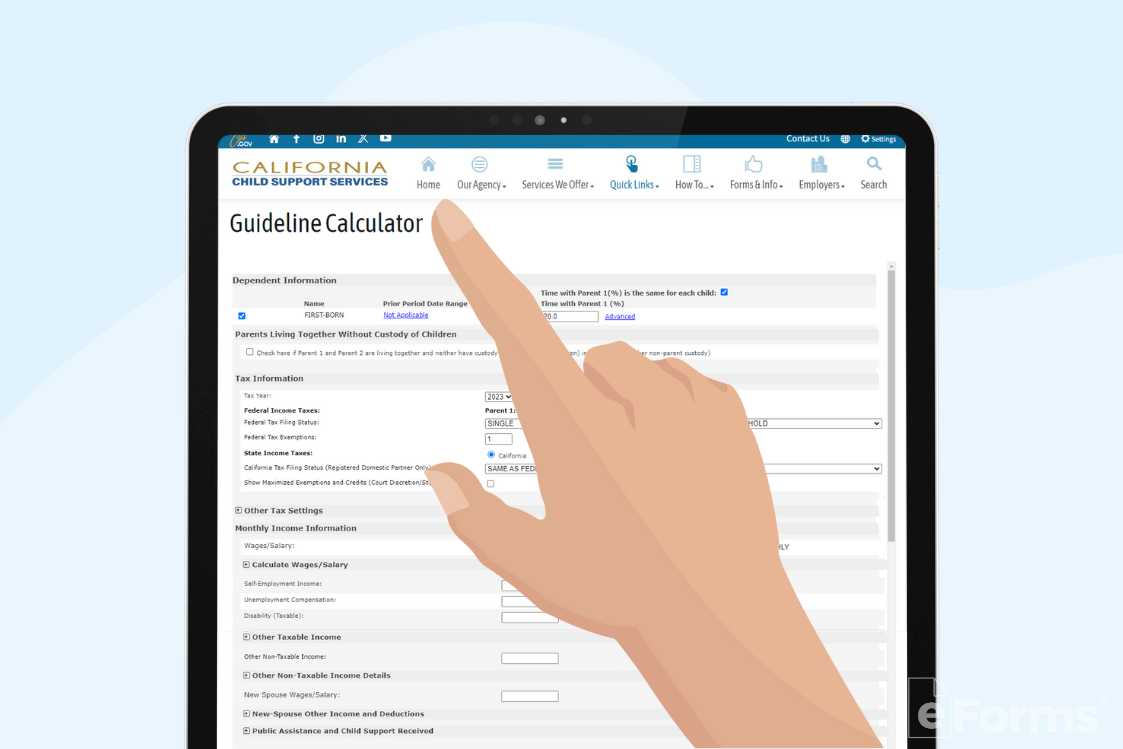
In California, child support is calculated using a formula that considers a variety of factors, including the income of both parents, the number of children, tax implications, and more. The California Child Support Guideline Calculator can be used to estimate the amount of child support that may be ordered by the court.
3. File Paperwork
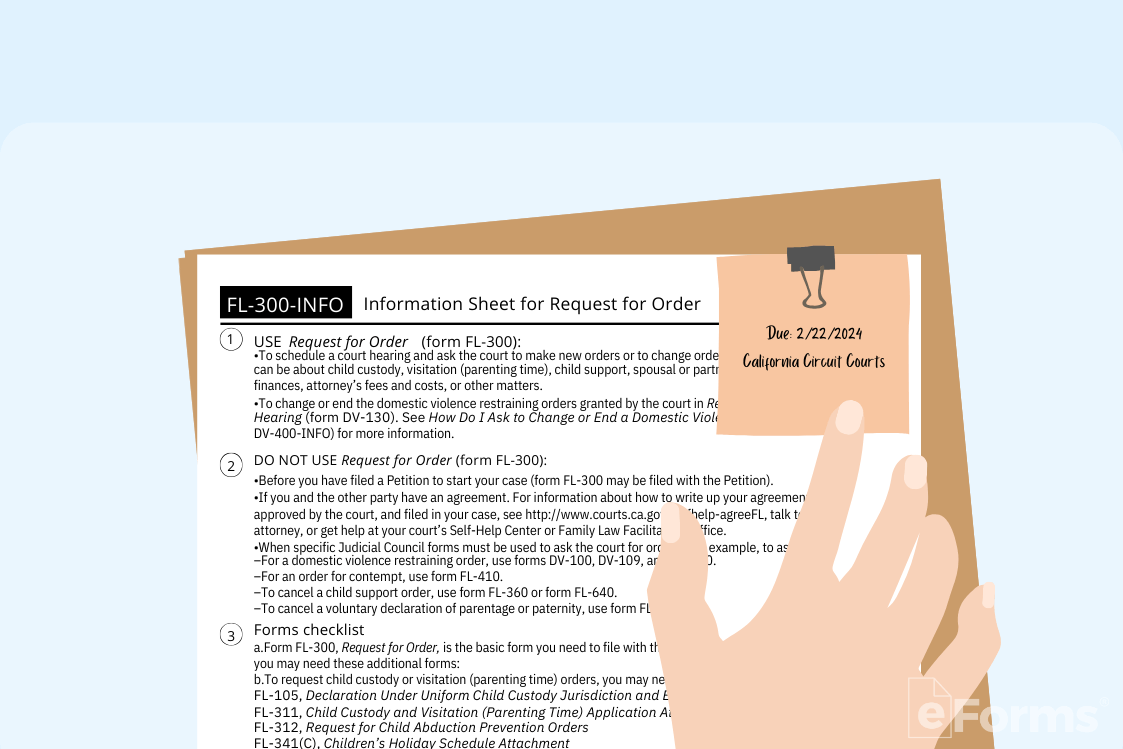
The first step in the process is to file a Request for Custody Orders (Form FL-300), which schedules a court hearing. See instructions for completing Form FL-300.
Any of the following forms may also be required:
- Child Custody and Visitation (Parenting Time) Application Attachment (FL-311)
- Children’s Holiday Schedule Attachment (FL-341(C))
- Additional Provisions—Physical Custody Attachment (FL-341(D))
- Joint Legal Custody Attachment (FL-341(E))
These documents can be filed online through the Odyssey eFileCA service or in person at the local Superior Court. If filing in person, take the original forms plus two copies to the clerk. Filing fees apply.[3] At this stage, the clerk will assign a hearing date.
4. Serve Other Party
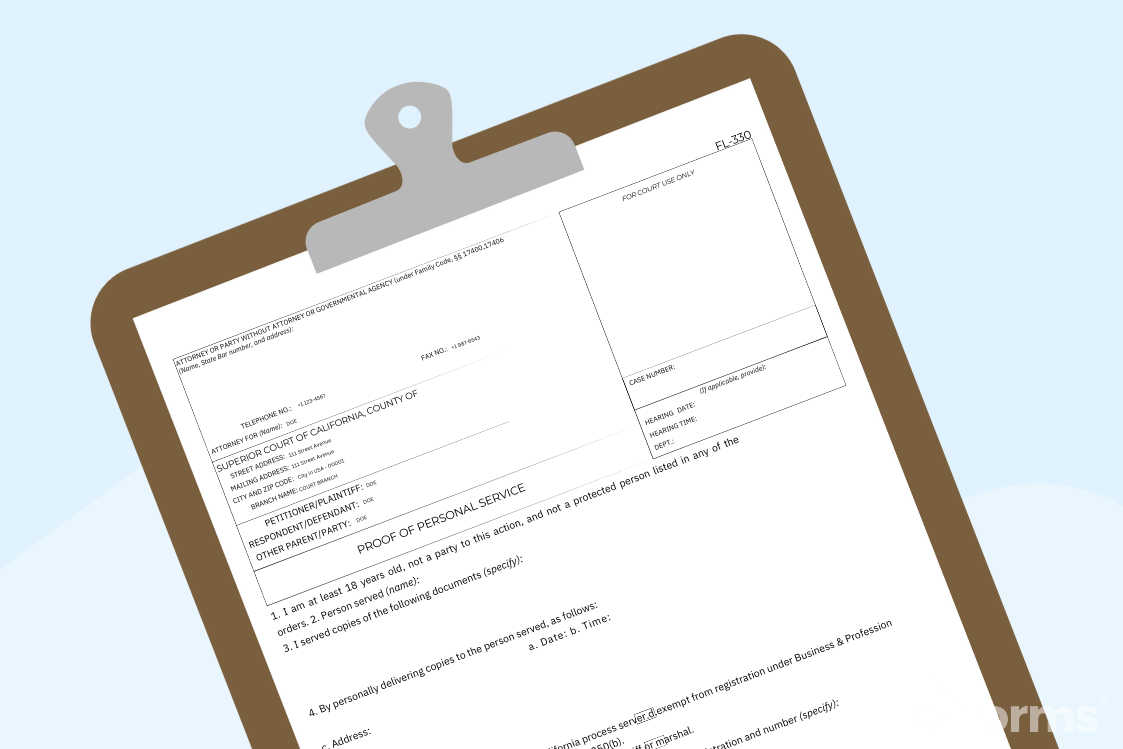
The filing party must have the documents properly served on the other party at least 16 business days before the hearing begins. It’s important to note that in California, the papers can’t be served by the party who filed them. A server must be a disinterested party and over the age of 18; this can be a friend or a professional process server.
In order to prove to the court that the documents were properly served, the filing party must file a Proof of Personal Service form (if served in person) or a Proof of Service by Mail form (if served by mail). Proof of service forms must be filed with the court five business days before the hearing.
5. Attend Hearing
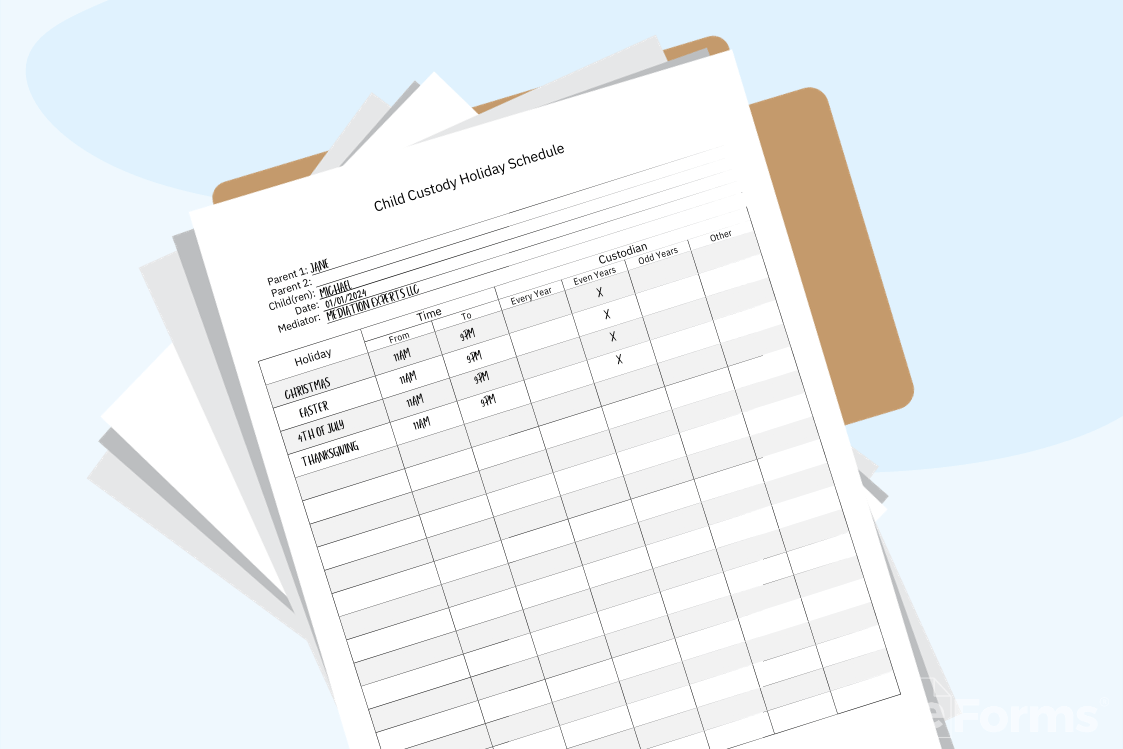
Hearings are generally scheduled for one or two months after the request for an order is filed with the court. The court’s judgment is final.
Custody Laws
- Child’s Preference: Yes, if the child is “of sufficient age and capacity to reason so as to form an intelligent preference” (Cal. Fam. Code § 3042)
- Uniform Child Custody Jurisdiction and Enforcement Act: Division 8, Part 3
- Visitation: Division 8, Part 2, Chapter 5
Related Forms

